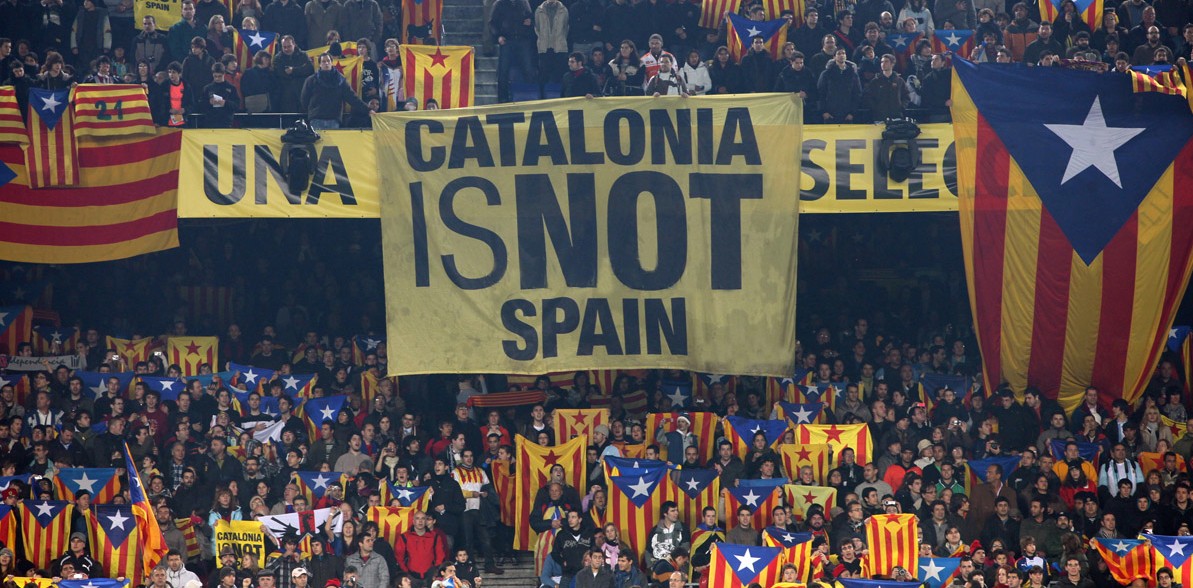Catalan parliament suspended
October 5, 2017 | Expert Insights

Spain's constitutional court has suspended a Catalan parliament session planned on Monday in an attempt to block an expected declaration of independence by Catalan President, Carles Puigdemont.
The court upheld a challenge by Catalonia’s Socialist party, which has opposed the secession from Spain.
Background
Catalonia was an independent region of the Iberian Peninsula – modern-day Spain and Portugal – with its own language, laws, and customs.
In 1150, the marriage of Petronilia, Queen of Aragon and Ramon Berenguer IV, Count of Barcelona formed a dynasty leaving their son to inherit all territories concerning the region of Aragon and Catalonia.
This lasted until the reign of King Philip V. The War of the Spanish Succession ended with the defeat of Valencia in 1707, of Catalonia in 1714, and finally with the last of the islands in 1715 – resulting in the birth of modern-day Spain.
Subsequent kings tried to impose the Spanish language and laws on the region, but they abandoned their attempts in 1931 and restored the Generalitat (the national Catalan government).
General Francisco Franco, however, set out to destroy Catalan separatism and with his victory at the Battle of Ebro in 1938 he took control of the region, killing 3,500 people and forcing many more into exile.
The region was granted a degree of autonomy once more in 1977, when democracy returned to the country.
Calls for complete independence grew steadily until July 2010, when the Constitutional Court in Madrid overruled part of the 2006 autonomy statute, stating that there is no legal basis for recognizing Catalonia as a nation within Spain.
The economic crisis in Spain has only served to magnify calls for Catalan independence – as the wealthy Barcelona region is seen as propping up the poorer rest of Spain.
Castells are symbolic of Catalan culture
7.5m: The population of Catalonia makes up 16.1pc of Spain’s 46.6 million
95 percent: Proportion of the population that understand Catalan, the region’s primary language. An estimated 10 million speak Catalan worldwide - primarily in Catalonia, the Valencian Community, the Balearic Islands and France
9th: Catalan’s ranking on the list of the most widely spoken languages in Europe. It is not, however, on the EU’s list of 24 official languages
€209bn: Catalonia’s GDP in 2014. Spain’s was €1 trillion
€5.3bn: Value of exports from Catalonia in May 2015
19 percent Catalonia’s unemployment rate in the second quarter of 2015, slightly lower than Spain’s rate of 22.2 percent
8 percent: The amount of GDP the Catalan Government has said it would claw back if it didn’t have to hand over its taxes to the Spanish Government
3 notable Catalans: Salvador Dalí, Antoni Gaudí and Montserrat Caballé
Read more:
Analysis

The Catalan region has long been the industrial heartland of Spain – first for its maritime power and trade in goods such as textiles, but recently for finance, services, and hi-tech companies.
It is one of the wealthiest regions of Spain - it accounts for 18.8pc of Spanish GDP, compared to 17.6pc from Madrid. Madrid, however, has a higher per capita GDP.
Secession would therefore, cost Spain almost 20 percent of its economic output, and trigger a row about how to carve up the sovereign’s 836 billion euros of debt.
It would have a gross domestic product of $314 billion (£195bn), according to calculations by the OECD, which would make it the 34th largest economy in the world. That would make it bigger than Portugal or Hong Kong.
Its GDP per capita would be $35,000, which would make it wealthier than South Korea, Israel or Italy.
And Catalonia's contribution to the Spanish economy is twice that of Scotland’s to the UK.
Investors are waking up to the risk: Spain's benchmark stock index dropped as much as 2.7% on Wednesday. Spanish banks with headquarters in Catalonia's capital, Barcelona, traded as much as 7% lower, and Spanish government bonds declined. Catalonia is Spain's most economically productive region, hosting 7,100 foreign companies including Volkswagen (VLKAY), Nissan (NSANF) and Cisco (CSCO, Tech30).
Assessment
Our assessment is that despite the crumbling relationship between Barcelona and Madrid, the two sides will be able to negotite a truce. We believe that Catalonia will not presently have the means, including fiscal resources, to push for a full independence. We also feel that a negotiated settlement could leave Catalonia with more autonomy and increased control over its finances. Both Madrid and Barcelona are fully aware that the intransigience could slow Spains economic growth from its present 3.2% to around 2.5% .
Read more








Comments